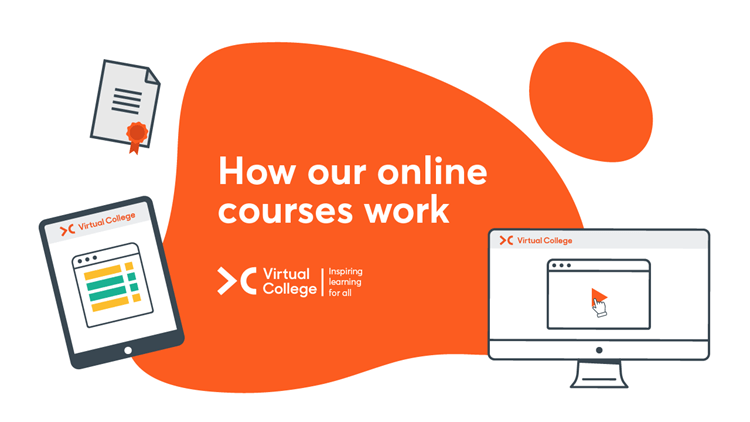How to Form a Robust Opinion
Maybe you've got an idea that you want to put forward at work, but you're not sure how it'll go down. Perhaps you're looking to influence a new policy or persuade your senior leadership team to take a new direction. Whatever your reason for wanting to construct a robust opinion, you're in the right place. This short course will take you through three steps to help you form an opinion that's thoughtful and nuanced. This training course has been created in collaboration with our subject matter expert, Eleanor Snare, emotional literacy specialist and life coach.
Course Overview
Format
- Introductory Course
- 8-12 minutes
- Online Study
- Self-Printed Certificate
Accreditation
- Virtual College Certified
Course description
This short course has been designed to help you learn the three basic principles of collaborating in your work environment.
What is covered in this How to Construct a Robust Opinion course?
Our online How to Construct a Robust Opinion training course is broken down into the following sections and can be completed at your own pace. The course includes:
| Module | What it includes |
| Research | With access to more of the world's data than ever before, you'd think forming robust, evidence-backed opinions would come naturally. But because there is so much information, and we live such fast-paced lives, it's actually becoming harder. In this section we explore the difference between quantitative and qualitative research and the importance of doing primary research. |
| Assessing the Validity of Research |
Whilst researching is a key skill that you need to have in order to help you construct a robust opinion, assessing the information you find is just as important. We look at how, in a world of 'fake news' it's important to play detective and get the correct information. You'll learn about The TRAAP Test and take part in a matching activity to further your understanding. |
| Inferring |
In this section, you'll look at what inferring means and how it is vital to constructing a robust opinion. You'll also be given some exercises where you'll be able to play detective and see inferring in action |
| Extension Task | By this section, you'll have covered a lot of material. To really get to grips with what it all means, this task will put you to the test. Once you've practised the art of constructing a robust opinion, you'll next want to think about evidencing it. We give you hypothetical scenarios and ask you to attempt the questions in order to test your understanding. |
Why take this How to Construct a Robust Opinion course?
This short course has been designed to help you to construct a robust opinion in the most effective way possible. It will take you through three steps to help you form an opinion that's thoughtful and nuanced, starting with researching your topic, then assessing the information, and finally inferring what it all means. You will learn to identify different types of research by looking at examples of quantitative and qualitative information, and primary and secondary research as well as be able to apply and combine both deductive and inductive reasoning skills.
How to Construct a Robust Opinion Course Duration
This short power skill course should take 8-12 minutes to complete, but e-learning is self-paced, so it depends entirely on your individual learning speed and how quickly you absorb the study material.
Certification
After completing this How to Construct a Robust Opinion course, you will be able to download and print a Virtual College certificate for your records.
Entry requirements
There are no specific entry requirements for this How to Construct a Robust Opinion course.
Further online training courses
We have over 300 accredited online courses and a wide selection of personal and professional development courses including Dealing with Difficult Situations, How to Improve Problem-Solving Skills and Learning to Say No - The Right Way.
View our full catalogue of online courses here.
You will learn
- Identify different types of research by looking at examples of quantitative and qualitative information, and primary and secondary research
- Apply the TRAAP Test to determine the validity of information
- Develop your inferring skills by finding meaning in what you discover during your exploration of a topic
- Apply and combine both deductive and inductive reasoning skills
Who is it for?
Roles including:
- Senior or middle management
- New or aspiring managers
- Experienced managers
- Project Managers
























